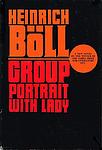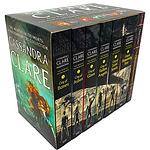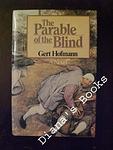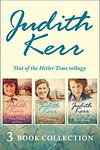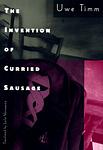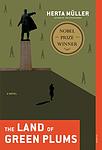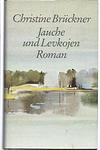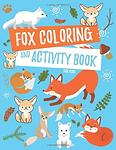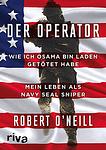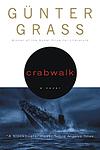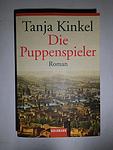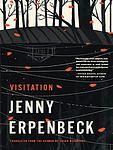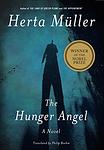The Greatest German "Fiction, Historical fiction" Books Since 1970
Click to learn how this list is calculated.
This list represents a comprehensive and trusted collection of the greatest books. Developed through a specialized algorithm, it brings together 294 'best of' book lists to form a definitive guide to the world's most acclaimed books. For those interested in how these books are chosen, additional details can be found on the rankings page.
Genres
Historical fiction is a genre of literature that combines fictional stories with real historical events, settings, and characters. These books often take place in a specific time period and are based on research and factual information, but also include imaginative elements to create a compelling narrative. Historical fiction allows readers to experience the past in a unique and engaging way, while also providing insight into the social, cultural, and political issues of the time.
Countries
Date Range
Reading Statistics
Click the button below to see how many of these books you've read!
Download
If you're interested in downloading this list as a CSV file for use in a spreadsheet application, you can easily do so by clicking the button below. Please note that to ensure a manageable file size and faster download, the CSV will include details for only the first 500 books.
Download-
1. The Book Thief by Markus Zusak
Set in Nazi Germany during World War II, the novel follows the story of a young girl who finds solace in stealing books and sharing them with others. In the midst of the horrors of war, she forms a bond with a Jewish man her foster parents are hiding in their basement. The story is narrated by Death, offering a unique perspective on the atrocities and small acts of kindness during this period. The girl's love for books becomes a metaphor for resistance against the oppressive regime.
-
2. Anniversaries by Uwe Johnson
"Anniversaries" is a novel that provides a detailed account of a year in the life of Gesine Cresspahl, a German immigrant living in New York City with her young daughter. The narrative unfolds through daily entries, spanning from August 1967 to August 1968, intertwining the protagonist's present-day experiences with her traumatic past in Nazi and post-war East Germany. The novel explores themes of memory, identity, displacement, and the complexities of history, offering a nuanced perspective on the immigrant experience and the lasting impacts of historical trauma.
-
3. The Reader by Bernhard Schlink
"The Reader" is a poignant narrative centered around a young German boy's complex relationship with an older woman, who later turns out to be a former Auschwitz guard. Their relationship begins with her teaching him to read, but takes a drastic turn when she disappears, only to reemerge on trial for war crimes. The novel explores themes of guilt, shame, and redemption, as the boy, now a law student, grapples with his feelings for a woman he once loved, but whose past actions he cannot reconcile with.
-
4. Group Portrait with Lady by Heinrich Böll
This novel delves into the life of Leni Pfeiffer, a resilient woman surviving in post-World War II Germany. Through the eyes of an unnamed narrator, the story unravels Leni's life, her relationships, and the socio-political climate of the time. The narrative is presented as a group portrait, with each chapter focusing on different characters who have been part of Leni's life, highlighting the hardships and resilience of everyday people in the aftermath of war.
-
5. Patterns of Childhood by Christa Wolf
"Patterns of Childhood" is a semi-autobiographical novel that explores a woman's struggle to reconcile her past as a member of the Hitler Youth in Nazi Germany with her present as a writer in East Germany. The protagonist uses her memories, dreams, and conversations with her brother to confront her guilt and shame over her involvement in the Nazi regime. The narrative shifts between past and present, creating a complex and layered exploration of guilt, memory, and the process of coming to terms with a traumatic past.
-
6. Cassandra by Christa Wolf
The novel is a retelling of the Trojan War from the perspective of Cassandra, the doomed prophetess and daughter of Priam, the king of Troy. Through her eyes, we experience the final days of the legendary city and her own tragic fate. The narrative delves into themes of power, feminism, and the role of women in history and myth, as Cassandra reflects on her life, her prophetic gift that was both a blessing and a curse, and the events leading up to the city's downfall. Her internal monologue provides a poignant and introspective examination of human nature, war, and the often-unheard voices of women in the shadow of great historical narratives.
-
7. The Parable of the Blind by Gert Hofmann
"The Parable of the Blind" is a darkly comedic novel that follows six blind men who are hired to pose as models for a famous painter's depiction of a biblical parable. As they journey to the painter's studio, they struggle with their dependence on each other and the outside world, grappling with the limitations and challenges of their blindness. The narrative explores themes of human vulnerability, the nature of perception, and the absurdity of existence.
-
8. Vertigo by W. G. Sebald
"Vertigo" is a complex narrative that combines elements of fiction, travelogue, biography, and autobiography. The novel is divided into four sections, each exploring the life and works of different historical figures such as Stendhal, Kafka, and Casanova, as well as the author's own experiences. The narrative is characterized by its exploration of themes such as memory, identity, and the past, often blurring the lines between fact and fiction. The book is also notable for its distinctive style, featuring long, meandering sentences and a lack of traditional plot structure.
-
9. When Hitler Stole Pink Rabbit by Judith Kerr
"When Hitler Stole Pink Rabbit" is a poignant and autobiographical novel that follows the life of a young Jewish girl named Anna and her family as they flee Germany in the 1930s to escape the rise of the Nazi regime. Through Anna's eyes, the book explores the challenges and hardships faced by refugees, as well as the loss of identity and sense of belonging. It is a touching story of resilience, courage, and the power of family bonds in the face of adversity.
-
10. The Invention of Curried Sausage by Uwe Timm
The book is a fictional account of the creation of the popular German fast food, curried sausage. The story unfolds through the narration of a young journalist who visits an elderly woman, believed to be the inventor of the dish during World War II. It explores the woman's tumultuous love affair with a young sailor during the chaotic final days of the war, her struggle for survival, and the circumstances that led to the creation of the spicy sausage. The novel is a blend of romance, war-time survival, and culinary innovation.
-
11. The Land Of Green Plums by Herta Müller
The novel is a poignant exploration of life under a repressive regime, following a group of young friends in Romania during the totalitarian rule of Nicolae Ceaușescu. Through the eyes of the narrator, a young woman with aspirations of freedom and self-expression, the story delves into the oppressive atmosphere of surveillance, fear, and betrayal that permeates their existence. As they struggle to maintain their integrity and hope amidst the dehumanizing forces of the state, the friends are inexorably drawn towards tragic outcomes, illustrating the devastating impact of living under constant oppression and the indomitable spirit that resists it.
-
12. Tadellöser & Wolff by Walter Kempowski
The book is a semi-autobiographical novel that paints a vivid portrait of middle-class family life in Germany during the interwar years and World War II. Through the lens of a young boy growing up in a provincial town, the narrative explores the everyday experiences, joys, and struggles of the Tadellöser and Wolff families. The story captures the innocence of childhood against the backdrop of historical upheaval, as the protagonist observes the changing world around him, including the rise of National Socialism, with a mix of naivety and acute perception. The novel is both a personal coming-of-age tale and a broader commentary on the societal transformations of the era.
-
13. Jauche Und Levkojen by Christine Brückner
The book is a historical novel that delves into the life of a young woman navigating the complexities of her existence in post-World War II Germany. Set against the backdrop of a country struggling to rebuild and come to terms with its recent past, the narrative follows the protagonist's journey through personal growth, love, and loss. As she grapples with the societal changes and the scars left by the war, the story paints a vivid picture of the era's social dynamics, the challenges faced by women, and the resilience required to forge a new path in a world forever altered by conflict.
-
14. Measuring the World by Daniel Kehlmann
"Measuring the World" is a historical novel that reimagines the lives of two brilliant and driven men, German mathematician Carl Friedrich Gauss and German geographer Alexander von Humboldt. The narrative alternates between the two protagonists, exploring their individual quests to quantify and understand the world. Gauss, a child prodigy from a poor family, rises to become one of the greatest mathematicians in history, while Humboldt, a wealthy and ambitious explorer, embarks on a five-year journey across South America. Their paths converge in a humorous and touching manner, highlighting the contrast between their approaches to knowledge and discovery.
-
15. The Hidden Word by Ulla Hahn
"The Hidden Word" is a poignant coming-of-age novel set in post-war Germany, which follows the life of a young girl from a conservative, working-class family as she discovers the transformative power of language and literature. Struggling against the constraints of her rural, religious upbringing and the societal expectations placed upon women of her time, she seeks solace and freedom in the world of books. Her intellectual and emotional journey is marked by the tension between her burgeoning individuality and the traditional values she is expected to uphold, leading to a narrative rich in both personal growth and the exploration of the capacity of words to both conceal and reveal profound truths.
-
16. The Discovery Of Slowness by Sten Nadolny
The novel is a historical and philosophical exploration of the life of the 19th-century British explorer Sir John Franklin, reimagined through the lens of his unique perception of time. It delves into Franklin's character, portraying him as a man who experiences the world at a slower pace than those around him, allowing for deep reflection and a profound connection to his surroundings. This narrative approach offers a meditation on the virtues of slowness in a rapidly changing world, challenging the reader to reconsider the value of patience and careful thought in an era that increasingly prioritizes speed and efficiency.
-
17. Der Laden by Erwin Strittmatter
The book is a richly detailed, autobiographical trilogy that paints a vivid portrait of village life in Germany through the first half of the 20th century. It follows the life of Esau Matt, a baker's son, as he grows up during the tumultuous times of the Weimar Republic, the rise of National Socialism, and the Second World War. The narrative delves into the everyday experiences of the villagers, their struggles, and their resilience, capturing the social and political changes of the era through the lens of a small community and the coming-of-age story of its protagonist.
-
18. The Blind Side of the Heart by Julia Franck
"The Blind Side of the Heart" is a historical novel that explores the life of a German woman before, during, and after World War II. The story begins with her abandonment of her young son at a railway station, then flashes back to her own childhood, her experiences during the war, and her tumultuous relationships. The narrative provides a deep and unflinching look at the psychological effects of war and the struggle for survival, as well as the profound impact of trauma and loss.
-
19. Crabwalk by Günter Grass
This novel delves into the tragic sinking of the Wilhelm Gustloff, a German ship, during World War II, through the eyes of a journalist investigating the event's historical and personal ramifications. The narrative weaves together past and present, exploring the intergenerational impact of the catastrophe on survivors and their descendants. The author employs a unique storytelling technique, the "crabwalk," moving backward and forward in time to reveal the complexities of guilt, memory, and the reinterpretation of history. Through its intricate plot and deep character exploration, the book addresses the themes of nationalism, the repercussions of war, and the struggle to come to terms with one's heritage.
-
20. Die Puppenspieler by Tanja Kinkel
Set against the backdrop of the late Middle Ages, the novel weaves a tale of intrigue, power, and betrayal, following the lives of two families of puppeteers who become embroiled in the political machinations of their time. As they travel through the tumultuous landscapes of Europe, they encounter historical figures and events, from the fall of the Knights Templar to the turmoil of the Papal States. The families must navigate the treacherous waters of courtly life, where the art of puppetry becomes a metaphor for the control and manipulation exercised by the ruling classes. Their journey is not only a physical one but also a quest for artistic freedom and personal integrity in an era rife with corruption and upheaval.
-
21. The Flounder by Günter Grass
The book is a rich tapestry of historical fiction and magical realism, weaving together the lives of a talking fish, a series of women cooks, and the men in their lives over several centuries. It explores themes of feminism, power, and the evolution of culinary arts, with the titular flounder serving as a guide and witness to the unfolding human drama. The narrative spans from the Stone Age to the modern era, reflecting on the changing roles and relationships between men and women, as well as the impact of these dynamics on culture and society. The novel is a blend of myth, satire, and allegory, presenting a unique perspective on the history of humanity through the lens of food and gender politics.
-
22. Visitation by Jenny Erpenbeck
"Visitation" is a novel that explores the history of a house located by a lake in Brandenburg, Germany, and the various inhabitants it has seen over the centuries. The narrative spans from the early 20th century to the post-war period, encompassing the tumultuous events of the Weimar Republic, the Third Reich, and the German Democratic Republic. Each chapter is dedicated to a different resident's story, including a Jewish family, an architect, a young girl, and a Soviet officer, among others, creating a tapestry of human experiences and emotions shaped by the historical and political upheavals of the time.
-
23. Fortune's Wheel by Rebecca Gablé
"Fortune's Wheel" is a historical novel that transports readers to the tumultuous period of the Hundred Years' War and the Black Death in Europe. The story revolves around a young English craftsman who rises from the ashes of personal tragedy. As he navigates the complex social hierarchies and political turmoil of the 14th century, he finds himself caught between loyalty and ambition, love and duty. The protagonist's journey is one of resilience and transformation, set against the backdrop of a world where the whims of fate can uplift or destroy the fortunes of men. Through vivid storytelling, the novel explores themes of power, destiny, and the enduring human spirit.
-
24. The Hunger Angel by Herta Müller
"The Hunger Angel" is a poignant novel that explores the harrowing experiences of a young man deported to a Soviet labor camp after World War II. The narrative delves into the psychological and physical toll of life in the camp, where the protagonist grapples with extreme hunger, harsh conditions, and the struggle to maintain a sense of identity and humanity. Through lyrical and evocative prose, the book captures the intense emotions and survival mechanisms of those ensnared in the brutal realities of historical political oppression.
Reading Statistics
Click the button below to see how many of these books you've read!
Download
If you're interested in downloading this list as a CSV file for use in a spreadsheet application, you can easily do so by clicking the button below. Please note that to ensure a manageable file size and faster download, the CSV will include details for only the first 500 books.
Download


